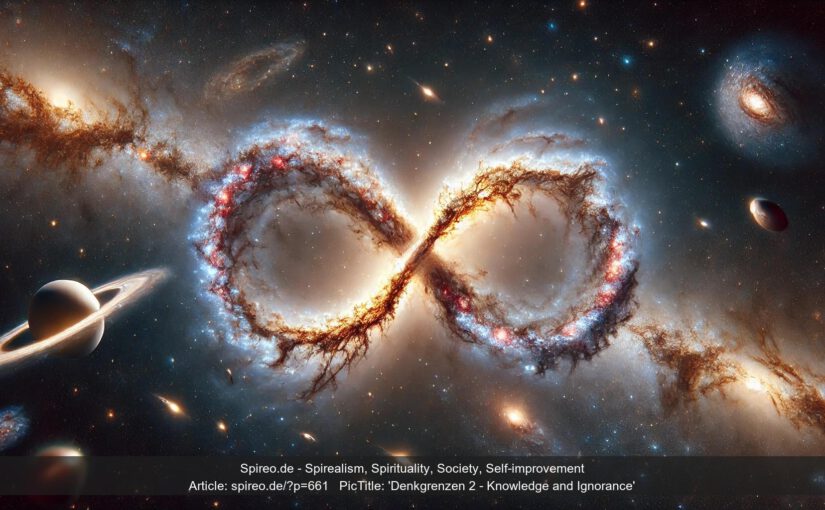Denkgrenzen – The World Between Knowledge and Ignorance
The concept of Denkgrenzen is essential to understanding the differences between knowledge and ignorance. Often, we assume that what we don’t know can simply be filled in through research or new information. However, this perspective carries a paradox: In an infinite informational world, knowledge is never complete but always remains relative to infinity.
The Relativity of Knowledge and Information
The universe is often understood as a closed system where information is collected and stored. However, this materialistic perspective assumes that information exists independently of us. In contrast, Spirealism views information as something we create. We are the information, and our perception shapes the world.
This dynamic understanding reveals that every piece of information is unique. No two data points are identical, meaning we continuously delve deeper into the informational world without ever reaching a definitive end.
The Seven Principles of Denkgrenzen
1. Information is infinite: Every piece of information is unique and creates new perspectives.
2. Knowledge is relative: Knowledge can never be absolute as it always relates to infinity.
3. Consciousness creates reality: Our perception shapes the world, not the other way around.
4. The limitation of thought: We can only think within the boundaries of our perception.
5. The illusion of knowledge: Everything we don’t know seems attainable, yet it’s part of an infinite process.
6. Void and origin: The void is the origin of the thought world, an indescribable plane.
7. The paradox of infinity: An infinite informational world contradicts the idea of a material universe.
These principles highlight the limitations of our thinking and the necessity of expanding our understanding of knowledge and information.
Practical Applications and Reflection
The recognition of Denkgrenzen provides opportunities to actively shape our reality. By focusing less on existing knowledge and adopting new perspectives, we can grow. A notable example is the Eastern teaching that suggests we must “empty our cup” to gain new wisdom. This principle emphasizes the importance of breaking old thought patterns and creating space for the new.
Ultimately, the concept of Denkgrenzen shows that our consciousness and informational world are inseparably linked. They are not fixed elements but are constantly in flux – a concept that helps us understand the world in its depth and dynamism.
